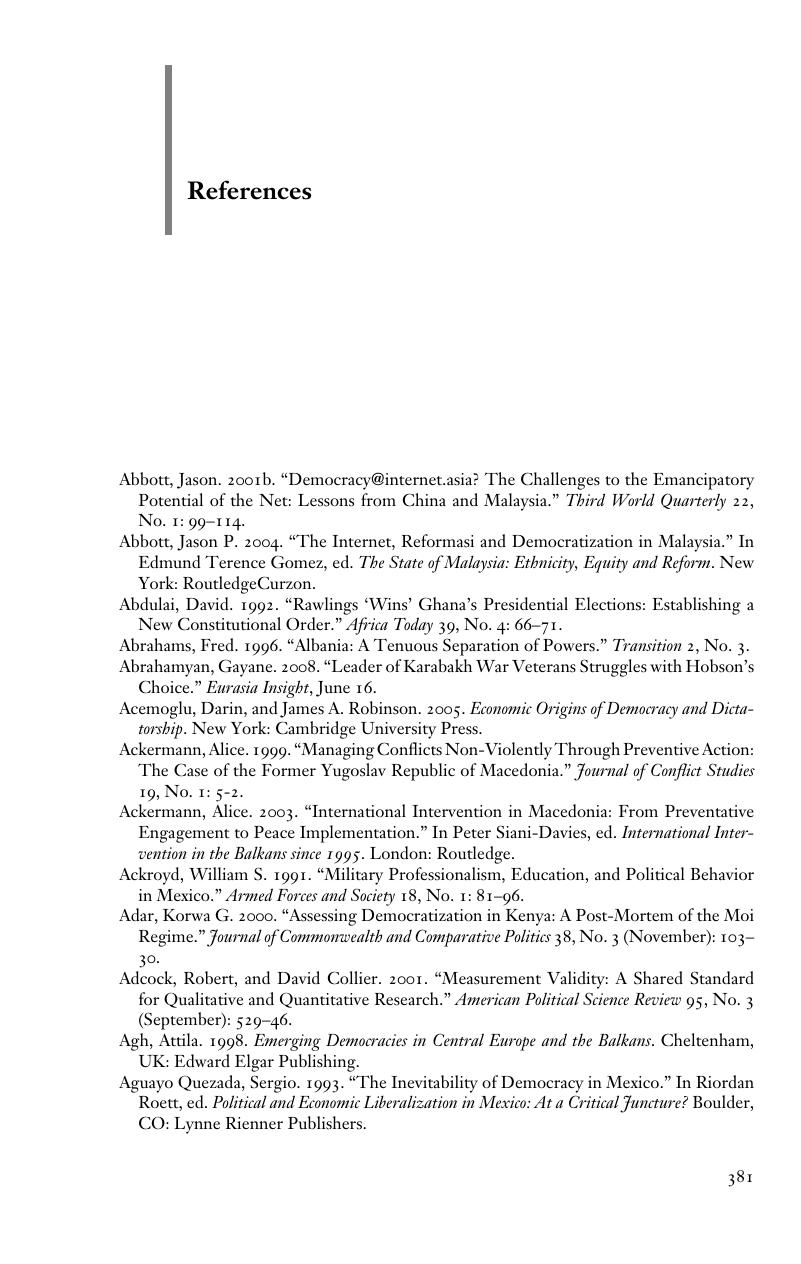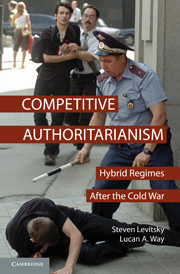Book contents
- Frontmatter
- Contents
- Acknowledgments
- Acronyms and Abbreviations
- Part I Introduction and Theory
- Part II High Linkage and Democratization: Eastern Europe and the Americas
- Part III The Dynamics of Competitive Authoritarianism in Low-Linkage Regions: The Former Soviet Union, Africa, and Asia
- 8 Conclusion
- Appendix I Measuring Competitive Authoritarianism and Authoritarian Stability
- Appendix II Measuring Leverage
- Appendix III Measuring Linkage
- Appendix IV Measuring Organizational Power
- References
- Index
- References
References
Published online by Cambridge University Press: 05 June 2012
- Frontmatter
- Contents
- Acknowledgments
- Acronyms and Abbreviations
- Part I Introduction and Theory
- Part II High Linkage and Democratization: Eastern Europe and the Americas
- Part III The Dynamics of Competitive Authoritarianism in Low-Linkage Regions: The Former Soviet Union, Africa, and Asia
- 8 Conclusion
- Appendix I Measuring Competitive Authoritarianism and Authoritarian Stability
- Appendix II Measuring Leverage
- Appendix III Measuring Linkage
- Appendix IV Measuring Organizational Power
- References
- Index
- References
Summary

- Type
- Chapter
- Information
- Competitive AuthoritarianismHybrid Regimes after the Cold War, pp. 381 - 492Publisher: Cambridge University PressPrint publication year: 2010

